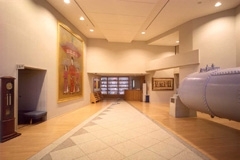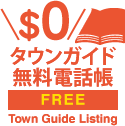View Option
Info Type
Sort by Industry
- Restaurant / Gourmet
- Gift / Shopping
- Fashion / Apparel
- Entertainment / Hobby
- Travel / Leisure
- Transporation
- Life / Housing
- Education / Lesson
- Ceremonial Occasion
- Beauty / Health
- Medical
- Government / Public
- Computer / Electronics
- Auto / Motorcycle
- Finance / Insurance
- Professional
- Corporation / Manufacture
- Media
- Religion
- Nightlife
- Group / Organization
Back
This text has been translated by auto-translation. There may be a slight difference between the original text and the translation. (Original Language: 日本語)

Tuesday 10:00-17:00
Wednesday 10:00-17:00
Thursday 10:00-17:00
Friday 10:00-17:00
Saturday 10:00-17:00
Opening hours : 10:00 ~ 17:00 ( last admission 16:30 )
Closed:Monday ( Open if Monday is a national holiday ), the day following a national holiday, Year-end and New Year holidays
紙の博物館
Tracing the history of paper, learning about the present, and thinking about the future



The "Prince Shotoku Mikage" on the front left is based on the "Prince Shotoku and Two Prince Statues" ( Nara Period ) owned by the Imperial Household Agency. The painter painted this work. Some washi-producing areas honor Prince Shotoku as the founder of paper, as he encouraged paper manufacturing to spread Buddhism. The paper is handmade by the Daiinshu Paper Cooperative ( Tottori Prefecture ) in a very large format (6 tatami mats). On display to the right is a "rag steaming kettle. Clothing rags were boiled in this kettle and used as raw material for paper. It was actually used at the Gifu Mill of Tokushu Paper Mfg. from 1965 ( to 1965 ).
Raw Materials in the Current Paper Industry ・ Manufacturing Process ・ Products ・ Manufacturing Machinery and other exhibits are displayed. A video showing the paper manufacturing process is also available.
・ Various raw materials for pulp and paper
・ Making pulp from wood
・ Making pulp from recovered paper
・ Making paper from pulp
・ Paper-like but not paper-like
・ Paper processing and composite
・ Printing and Paper
・ Various Processed Paper
・ Packaging and Paper
・ Paper Dimensions



This is a simple explanation of how paper works and recycling for elementary school students. There is also a computer quiz to have fun learning about paper and a Q & A corner about paper.
・ What is Paper ?
・ How Paper is Made
・ Various Types of Paper
・ Paper and Ecology
・ Paper Question Corner
Exhibits include the birth and spread of paper, the history of Japanese paper, the manufacturing process, and the history of handmade paper around the world. There is also a corner where visitors can actually touch and feel the texture of various types of paper.
・ Various materials for writing
・ The birth and spread of paper
・ Japanese handmade paper - History of Japanese paper History I ( Antiquity ~ Middle Ages )
・ Japanese Handmade Paper - History of Washi II ( Modern Times )
・ How Japanese Paper is Made
・ Various Paper Processing
・ History of Handmade Paper in Europe
・ From Handmade to Modern Paper Industry
・ From Japanese Paper to Western Paper
・ History of the Japanese Paper Industry
・ Textures of Paper ( Handmade Japanese Paper )
Early Meiji era paper mill gate ・ Paper merchant sign ・ Stone monument and other exhibits.
The Paper Museum was established in 1950 ( Showa 25, 1950 ) in Tokyo ・ as one of the world's leading comprehensive museums of paper, collecting ・ preserving and exhibiting a wide range of materials on paper, both Japanese and foreign, from all ages and cultures. It was established in Oji, Tokyo ・ as one of the world's leading comprehensive paper museums, collecting
Oji is known as the birthplace"of paper, as it was the site where the paper company ( Oji Paper's Oji Mill ) was established in the early Meiji period, which pioneered modern paper mills.
In 1949 ( Showa 24 (1949) ), under the Occupation's Excessive Concentration of Economic Power Elimination Act, Oji Paper was divided into three companies, Tomakomai Paper ・ Jujo Paper ・ and Honshu Paper. Taking this opportunity, the following year in 1950 ( Showa 25, ) the Paper Museum, the predecessor of the Paper Museum, was established in the only remaining burned-out power plant building at the Oji Mill, in order to make the materials of the Oji Paper Industry Archives available to the public and to contribute to social education at large.
Later, it was decided to leave the factory site due to the construction of the Oji Line of the Central Loop of the Metropolitan Expressway, and in 1998 ( Heisei 10 ) it was newly opened as one of the "Asukayama 3 museums" in the Asukayama Park.
Today, the museum is operated as a "Public Interest Incorporated Foundation of Paper Museum" with the cooperation of many related companies, including paper companies, paper tool manufacturers, and paper sales companies.
紙の博物館 - Home
You can visit this page by scanning QR code.







